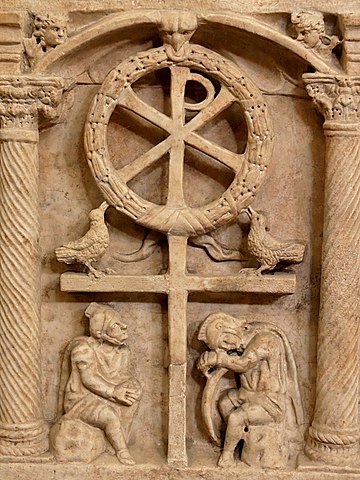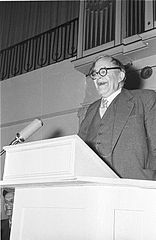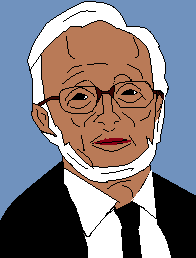The picture on the left was taken from a wiki. It is a representation of a risen Christ. If there is a difference between Protestants and Catholics the cross is one of them. The Roman Catholic Church uses Christ on the cross and a lot of Protestants prefer an empty cross. One puts more emphasis on the Atoning work of Christ and the other puts more emphasis on the ‘resurrection of Christ’. Both images are necessary. Last Week I put a picture of John Henry Newman on my blog and I think I may have offended some readers. I’m sorry if this is how you felt. With anything we need to be grown ups about this and sometimes I may walk a route of the history of Christianity or even of religions. This blog is for everyone no matter what they believe. Just to be clearer the next paragraph explains my stand point on certain points of faith.
Before I continue, I want to begin by saying I am convinced that Adam and Eve were literal people. The reason for this position is very simple. Our Lord Jesus did not see Adam and eve any other way. Our Lord did not say that ‘Adam was generic’ therefore the fall is still seen as the Fall and hence go down a theistic evolutionary road. No, I reject that road because for me it is not helpful and goes against our Apostolic deposit, that Scripture is Holy given to us through the agency of the Holy Spirit. My proposition and presupposition have to stem from the gift of faith. As Anselm said somewhere ‘I believe that I may understand’. I start from the presupposition of worship in our Holy Trinitarian God.
This does not mean that this position is against rationality. It is not irrationality, but it is being human. We are not machines who just churn out answers at the press of a button. On the contrary from the position of faith and by the Holy Spirit we can start to try to work out how to fix this broken world because of sin. So then this brings me to the point that sometimes I may touch on scholars who do not agree with my or your point of view. By studying those we agree with and don’t agree with we are like that proverb:
As iron sharpens iron,
So one person sharpens another. (Proverbs 27:17)
Thus, Professor Gunton is not Herman Bavinck. In their teachings, one scholar may be seen as sour cheese to you and the other a very tasty delicacy. No matter which way we jump another proverb and I don’t know where I picked it up from:
‘You eat the meat and spit the bones out’
The ‘meat’ is the Word of God and the ‘bones’ are the left overs that not much good for anything.
Theology is about the study of God. Unfortunately, a lot of people are afraid to think about the Divine. There can be many reasons for this. Many Systematic theologies no matter what tradition tend to be prescriptive, and the thinking is done for them. As a believer in the faith there are some prerequisites. It is interesting that Karl Barth, when he wrote a very thin book called Dogmatics in outline it follows the Apostolic Creed, and he explains it. His real Dogmatics which was not completed also had a structure. The doctrines of the Christian faith have a natural structure thus they are not that difficult to follow.
Why am I saying these things. The truth is that I want you the reader to grow closer and closer to Christ in your faith. If you are an atheist who reads my blogs, then I pray for you because your soul is on the line. It maybe that a person is convinced that they are only made up of chemicals (star dust). If this is the case, then one is living in the 17th and 18th centuries in which reality was seen as clockwork and the human becomes insignificant in the name of progress. The 19th century is more interesting because the whole movement of the Romantics was a reaction to this. People have imagination, they can think, feel, love, laugh, cry et al. People are more than machines. Whether you believe in God or not from the religious perspective, according to the book of Genesis, you have been created in the image of God.
Do you love God? Do you love your Bible? This is great if you do but unfortunately not everyone’s motives are pure who preach. As a believer you need to know why you believe in Jesus and why Christ is the foundation by the Holy Spirit. For myself I have a presupposition.
I believe and I want to know more about my Lord and Saviour Jesus Christ, who died for me through his atoning work on the Cross. I believe in his resurrection and one day my hope is that I will meet my Lord again in the eschaton. Not all preachers and teachers of the Bible follow this. Many have crept into the various Churches around the world and corrupted them for self-gain. Holiness has gone through the window and utilitarianism has taken its place. I’m sure if John Calvin or Martin Luther came back to our time and place, they would be very angry and heartbroken. What looks like faith on the surface is actually corruption, evil and sin in God’s eyes.
This is why you need to think theologically yourselves by getting on your knees praying for the wisdom of the Holy Spirit so that you soul is not led away by the bright lights of sin and darkness, ‘having the wool pulled over your eyes’. In the real world I am sure that someone has probably stolen from you or pretended to be a friend but was actually a con artist. However, the con-artist needs salvation as much as anyone else no matter how low they have fallen.
I’m one of the lucky ones, If I can use that term loosely. I can read Greek and Hebrew at a very basic level to function. I have had a theological and master’s degree from a renowned college. I have read Karl Barth under Colin Gunton one of the great experts on Karl Barth. I have many smaller writings of John Owen; I have read Irenaeus’ Against Heresies and some of Saint Augustine. I now have the whole batch of Reformed dogmatics by Herman Bavinck… so on. But I am saying to you now, that as a Christian you are already doing theology. It maybe that you don’t like the word theology because it gives you the creeps.
As I said I am going though the book of Colin Gunton on learning to do theology through the theologians. It may be that as soon as I mentioned Samuel Taylor Coleridge that you switched off because he was a poet and got hooked on opium and was not a model parent and husband. Those things are actually true and yes, he became a great poet and then trashed his life. To tell you the truth this happens all the time in our news. Coleridge was however special in some ways. He knew he did wrong; he was sorry and later on in his life, he believed in the Trinity and confessed Jesus as his Lord, and he even had Martin Luther’s table talk by his bedside. He wasn’t trained as a theologian, but he questioned and read everything. A lot of the questions he had during his life have become common questions. For example, ‘free will’, various schools of thought have different explanations of this. In this blog I am not trying to win an argument, but I am attempting to offer you a way of thinking that allows you to keep your faith and at the same time to engage in discussions about your faith that you have just taken for granted. True Godly education takes a lifetime and into the beyond and even in the New Jerusalem our awe of God will get deeper and deeper as we meditate on what the Lamb of God did for us. We will see and feel even more indebted for the sacrifice God made for us so that we could be brought into the love of God by the Father through the Son and the Holy Spirit. So then never judge a book by its cover but by the contents in that book. Do not judge Coleridge on the beginning of his life but by the end of his life. No one is perfect and we have to be humble enough to learn even from the imperfect perfect things.
I can see why the late Gunton found Coleridge interesting. The enlightenment made people into mere machines, and this needed a push to get our humanity back. This is what Romanticism attempted to do. Coleridge went back to Martin Luther, back to the state of the will, back to the fall, back to the Atonement which was a reversal of Schleiermacher ever stood for and back to the Trinity. Even though Coleridge made a lot of mistakes a long the way, he came to understand that Christ is the Way, The Truth and the Life.
Some of these things I should have said at the start of this blog, but the truth is that as I write these blogs I have to study and go deeper myself. Then as a good teacher I still need to break these things down so that teenagers and adults can understand.
Reflection
Which theologians do you look up to as good examples? 😊 My heroes are Irenaeus, Augustine, John Calvin, Martin Luther, Herman Bavinck et al. You may also have a list of ones you don’t agree with Schleiermacher, Oregon, Pannenberg. Hmm I’m just having a bit of fun here, but I still hope you get the idea. I’m not so sure I agree with everything Gunton says such as that a lot of ills in our society stem from Augustine. This is quite a charge, and I haven’t made my mind up yet. So, I have done a lot of Biblical exegesis over these few years, and this gives me a change. Theology does not need to be ‘a stick in the mud’ on the contrary by engaging with these theologians no matter what your predisposition is, we can learn how to think about deeper spiritual issues and in the long term become more like Christ.




